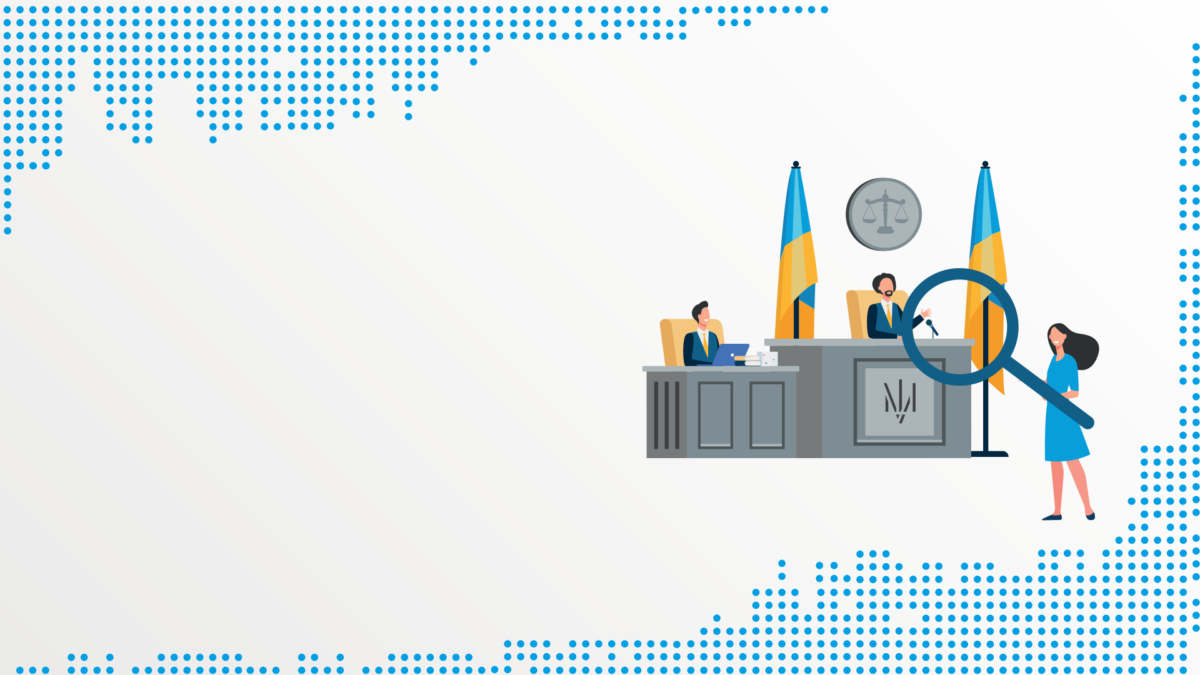

On January 21, Transparency International Ukraine presented the results of a six-month comprehensive study of the High Anti-Corruption Court’s work.
During the six months of monitoring HACC’s work, TI Ukraine’s lawyers attended more than 311 court hearings and monitored 68 proceedings. In the above proceedings, 126 people had the status of the accused.
In the first instance, the average percentage of violations is 7%. In the appellate instance, the average percentage of violations is 3%. As regards the generalized results of the hearings during the choice of interim measures, the average percentage of violations is higher (17%).
At the same time, experts have noted that the most noticeable trends in the work of the Court today are a significant number of postponed hearings (that is, among all the 224 hearings relevant for the monitoring process, 29% were postponed); court materials and documents not being transmitted through the court administrator; deviations from the standards of procedural ethics; deviations from the standards of reasonable suspicion when considering issues of choosing the interim measure.
These issues have become the main topics of discussion during the online event “What Affects the HACC: Monitoring Results.”
“Since the Court often considers cases that are of interest for the media, sometimes the focus shifts. Therefore, the issues of daily work and interaction with the SAPO, the NABU, and the legal community remain ignored,” explains Kateryna Ryzhenko, Head of the Legal Department of TI Ukraine. “We tried to overcome this challenge by conducting our study.”
During the event, Vira Mykhailenko, speaker judge of the HACC, spoke about the procedural components in the court’s activities and separately compared them with TI Ukraine’s research findings.
“Participants in proceedings always talk about the court, and someone will always be dissatisfied with its work, especially when it comes to the High Anti-Corruption Court. So, such monitoring helps us to understand what is really happening in a judicial institution, to obtain a more or less objective assessment of its work,” Vira Mykhailenko added.
Representatives of other parties involved in the court hearings also gave their feedback on interaction with the High Anti-Corruption Court. For instance, Olena Panchenko, SAPO Prosecutor, noted that the operational cooperation of the anti-corruption prosecutor’s office with the HACC is much faster than with other judicial institutions.
“The HACC is the final link in the anti-corruption reform. Therefore, in such a short period of time, we already see results, and there is a basis for the comparative analysis,” said Olena Panchenko.
Olena Krolovetska, Head of the Investigative Unit at the NABU, also shared her positive impressions of cooperation with the Court.
“The Court is developing, and we are developing together with it. We see positive changes and the ability to improve,” she said.
Lawyer Andriy Sliusar also submitted his comments on cooperation with the court.
“Being a citizen and a taxpayer, it is of the highest significance for me that we have professional prosecutors and detectives who can effectively investigate crimes, expose corruption and prove it in court,” he explained.
“I will lie if I say that everything works perfectly,” said Bohdan Kryklyvenko, HACC Chief of Staff. “There are challenges, and we are trying to respond by drawing on the best values and standards. I am sure that no one will be ashamed of HACC’s performance in the long run! “
Learn more about the monitoring results of the work of HACC from the TI Ukraine report.
The study was supported by the Bureau of International Narcotics and Law Enforcement Affairs of the US Embassy in Ukraine. The views belong solely to Transparency International Ukraine and do not necessarily reflect the US Embassy position.






